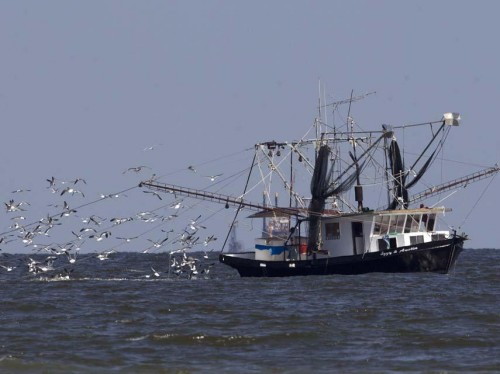
Kenneth John Hutchinson
July 18, 2011
Alphonse John Porche
July 20, 2011The agency authorized to administer damages linked to the 2010 BP Deepwater Horizon oil spill should cease making payments based on projected future losses because the spill’s economic impact has subsided, according to BP.
The Gulf Coast Claims Facility made public last week 29 pages of comments filed by the oil exploration company who shares responsibility for the spill and is on the hook for the $20 billion fund being administered by the GCCF.
The document implores the agency to take heed of positive economic indicators and end its “future factor” for final payments for all claimants, excluding some oyster harvesters.
“Multiple lines of evidence demonstrate that, to the extent that portions of the Gulf economy were impacted by the spill, recovery had occurred by the end of 2010, and that positive economic performance continues into 2011, with 2011 economic metrics exceeding pre-spill performance,” BP said.
“The current economic data do not suggest that individual and business claimants face a material risk of future loss caused by the Deepwater Horizon oil spill,” the filing continues.
BP has contended in the past that the GCCF was giving clients too much leeway in the claims process, and on the other end of the spectrum, claimants have charged the GCCF with being withholding and slow to respond.
One of the three options claimants have when filing for restitution is the final payment, which multiplies pre-spill income levels by the future factor in an attempt to project future impact.
BP used several arguments to prop up its request, including lodging revenues as an economic indicator, fishing hauls as a testament to the seafood’s vitality, news reports that tell of tourist returns and the fact that all federal fishing grounds have opened.
State Rep. Damon Baldone, a Houma lawyer whose advertisements urging spill-affected residents to contact him can be seen scattered throughout the area, called the BP opinion “horrible” because it generalized issues that differ by location.
“I disagree completely with the damages in Louisiana,” the Democrat said. “The fishing industry and the shrimp industry, as well oil service companies and other things still have huge damages left over just from the spill.”
Baldone said he represents more than 200 clients in spill-related matters. “There is so many people on the verge of bankruptcy because they’ve been completely devastated, people who have been in business for 30 years, so you can’t tell me that it’s other factors. It’s the BP oil spill, no doubt,” he said.
The holes in BP’s argument are most glaring, and Baldone’s point is best exemplified, when the filing discusses the seafood industry.
The oil company quotes the National Atmospheric and Oceanic Administration as saying Gulf seafood is safe to eat and illustrates with a chart that shrimp landings are up, almost across the board, over the previous five years. But it does not deal with a deflated national market due to perception.
“It could be the best season ever poundage wise, but if the price is not there and the perception of the public is that it’s substandard product, then that’s definitely damages,” Baldone said. “There is no doubt in my mind that is still going on.
“It’s just horrible to make such a blatant claim.”
The GCCF, through July 8, had issued final, full review payments to 34,252 claimants for $603 million, an average of $18,000 per claimant.
“The GCCF welcomes any and all input from any interested sources including BP,” GCCF Administrator Kenneth Feinberg said in a statement via his press secretary. “We take all of the submissions ‘under advisement.'”
BP’s filing is an attempt to guide the GCCF to strictly dole out claims that can be documented. In addition to the final payment option, claimants can file for quarterly interim payments based on documented losses or accept a quick payment that pays $5,000 for individuals and $25,000 for businesses.
Claimants waive liability and the option of litigation by accepting a quick payment. But interim payment claimants reserve the right to future litigation, and the method is the most documented, BP argued.
The future factor should remain in place for oyster harvesters, but BP called for the system to be re-evaluated. The oil exploration company distanced itself from the freshwater diversion tactic used by the state of Louisiana as it tried to thwart encroaching oil.
“BP is not liable for the State of Louisiana’s actions, and therefore the GCCF may not compensate claimants at any level, let alone at an enhanced future factor, for damages caused by the freshwater diversion,” BP said.
The GCCF is paying a 300 percent future factor to oyster harvesters, as far away as Alabama and Florida. BP argues the salinity of these waters was not impacted by the freshwater diversion, so even if BP were to be found liable in salinity claims, using a 300 percent future factor for harvesters east of Mississippi is “unjustified.”
The oil exploration company also said the GCCF has “exceeded its authority,” per the Oil Pollution Act of 1990 guidelines on claim payout. Among the BP’s gripes are that the GCCF has not offset Vessels of Opportunity payments, has not done enough to determine whether alleged losses are a product of the oil spill, and has been overly generous in regards to interpreting the economy of 2010 for projected losses.
The OPA requires parties responsible for an oil spill to establish a claims process. BP took charge in this regard and later delegated authority to the GCCF, while also giving the agency the authority to issue payouts pertaining to health concerns and mortality.
“Because the GCCF is, by consensual transfer, fulfilling BP’s OPA obligations, the GCCF’s authority to pay claims is only as broad as the scope of the transfer of authority,” BP’s filing reads. “That transfer, with the exception of bodily injury and death claims, does not authorize the GCCF to pay claims beyond the boundaries of OPA.”
As of press time, Feinberg had not responded to a question seeking comment on the GCCF’s interpretation of its authority under the OPA.
BP submitted 29 pages of input last week to the Gulf Coast Claims Facility, asserting, among other comments, that the GCCF should eliminate its “future factor” when determining damages stemming from the 2010 BP Deepwater Horizon oil spill. COURTESY PHOTO











